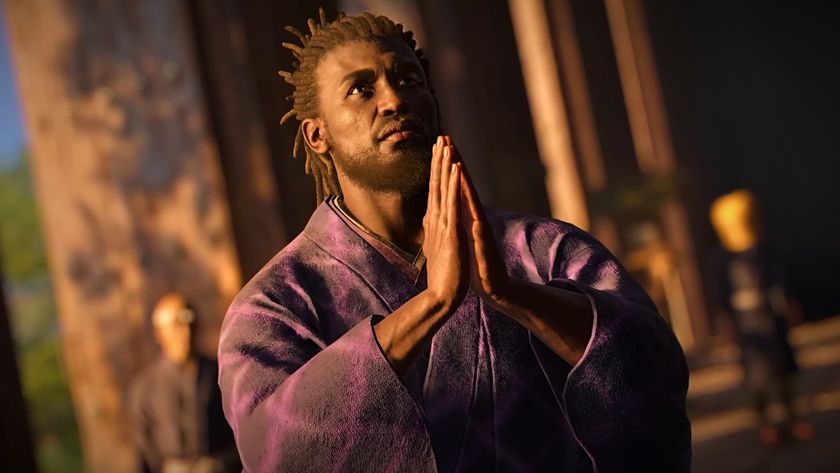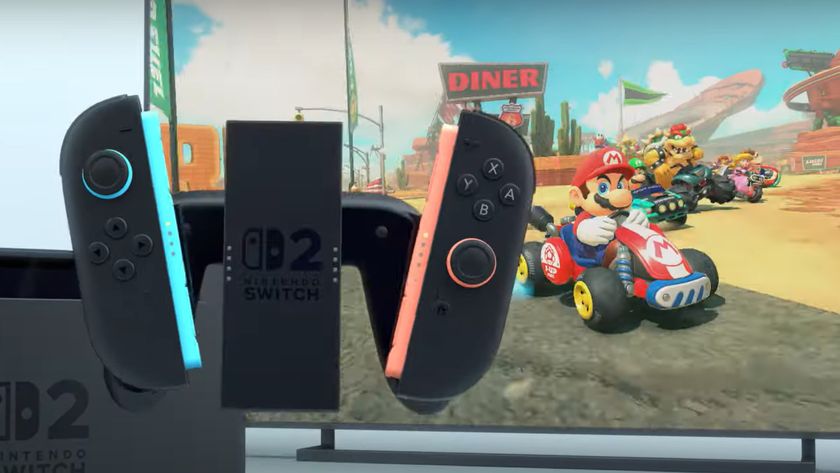
As I pointed out in my Mass Effect: Andromeda review for OPM, playing it is an experience that can be coloured by its instability. I’ve a few horror stories – a ‘favourite’ bug sees Ryder take a swig from a non-existent glass – but the biggest shame is how familiar this scenario is. A big, ambitious game launches with problems and then a few weeks later the patches roll out. But don’t think all of this is Bioware’s fault.
Despite plenty of pre-release evidence online of the technical issues that blight it, Andromeda debuted at the top of the sales charts in the UK. There are obvious reasons for this. The series’ name still carries a lot of weight, with the promise of a PlayStation 4-shaped leap forward enough to convince fans to go in on day one. While excitement rapidly gave way to disappointment, enough people took the risk to ensure it sold well.
As yawn-inducingly boring as it is to point out, that’s fair enough from a business perspective. Developers and publishers are going to focus on what makes them the most cash. No, not all of our favourite experiences exist so a faceless executive can finally afford the Lambo of their dreams. But, as long as the pounds roll in from us, creators and distributors have little incentive to ensure new releases don’t suffer from frustrating glitches.

Andromeda is hardly alone in this regard. Mafia 3’s early weeks were buggier than a mafioso’s mansion and, most infamously, Assassin’s Creed Unity’s disappearing faces and performance issues are still living on in memes today. Now those are three wildly different franchises that you could (maybe) argue don’t have a lot of fanbase crossover, but it’s fair to say a significant number of us have become used to games not quite being right on release and still parting with our cash anyway.
Perhaps it’s because patches have slowly increased in regularity since the PS3 era. As they have, so has an acceptance that problems will eventually get a fix and the early investment is still worthwhile. This isn’t always the case and some communities are rightly angry if they fork out money for something that doesn’t work as they expect. But, until a line is drawn, a big enough group of gamers is enabling this cycle to continue. It’s like trying to fix a broken relationship by yelling about all the other person’s flaws, but still chucking presents at them.

Credit where it’s due: Bioware is patching like crazy to sort out Mass Effect’s problems. A road map from general manager Aaryn Flynn promises patches that will add “more options and variety in the character creator, improvements to hair and general appearance for characters [and] ongoing improvements to cinematic scenes and animations,” among other additions. This poses a more awkward question. If Bioware can turn around these improvements so quickly, why was it not given the time to address these issues before launch?
Of course, technical excellence shouldn’t be sacrificed for creativity. It’s also unfair to expect ambitious projects not to have a few hiccups along the way, and I’m sure plenty of people are going to wait for Mass Effect to sort itself out. However, if we really want to send a message about how annoying it is when games need time for fixing after launch, we should send it from our wallets – otherwise, there’s scant encouragement for the status quo to change.
Sign up to the 12DOVE Newsletter
Weekly digests, tales from the communities you love, and more
This article originally appeared in Official PlayStation Magazine. For more great PlayStation coverage, you can subscribe here.

Ben Tyrer is a freelance games journalist with over ten years experience of writing about games. After graduating from Bournemouth University with a degree in multimedia journalism he's worked for Official PlayStation Magazine as a staff writer and games editor, as well as 12DOVE (hey, that's this website!) as a news editor. He's also contributed to Official Xbox Magazine, Edge, PC Gamer, GamesMaster, PC Games N, and more. His game of the year - no matter the year - is Rocket League.

Assassin's Creed Shadows was originally envisioned without Yasuke, but Ubisoft wanted the full feudal fantasy: "We were sort of making a stealth tank, and it didn't quite work"

Assassin's Creed Shadows lead says dual protagonists are "a cool thing" the new action RPG "does better than what we've done in the past"









